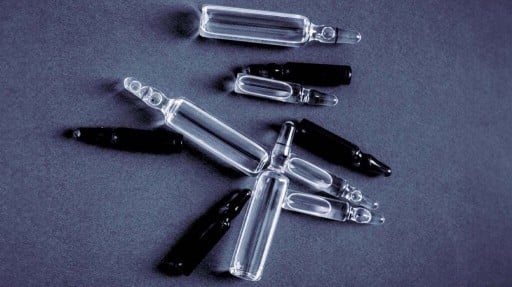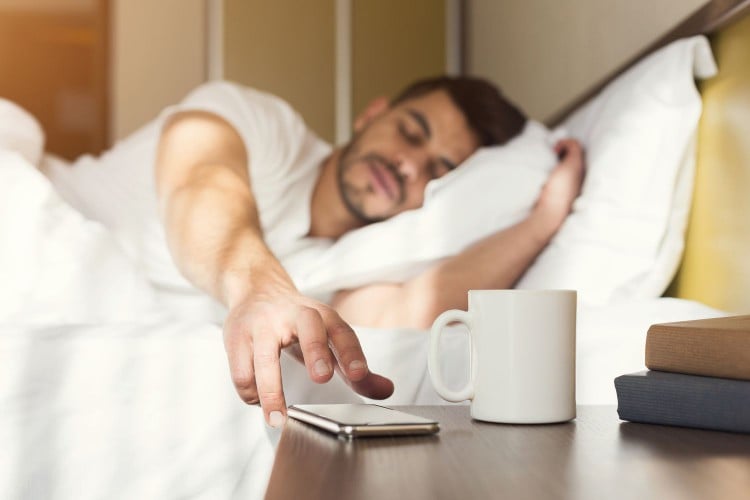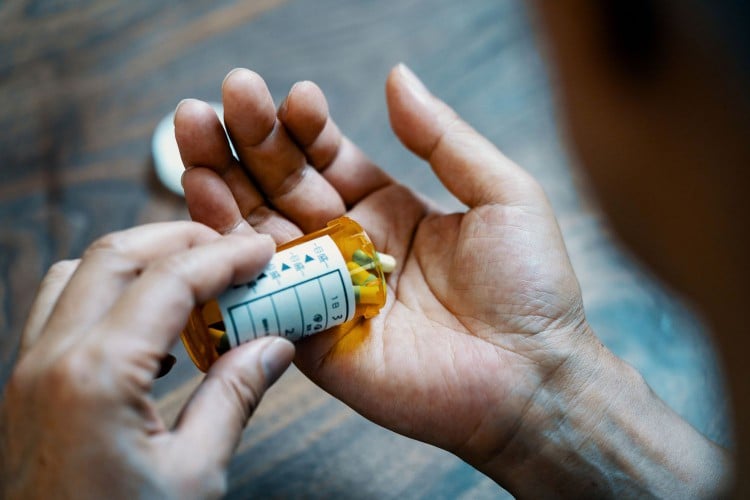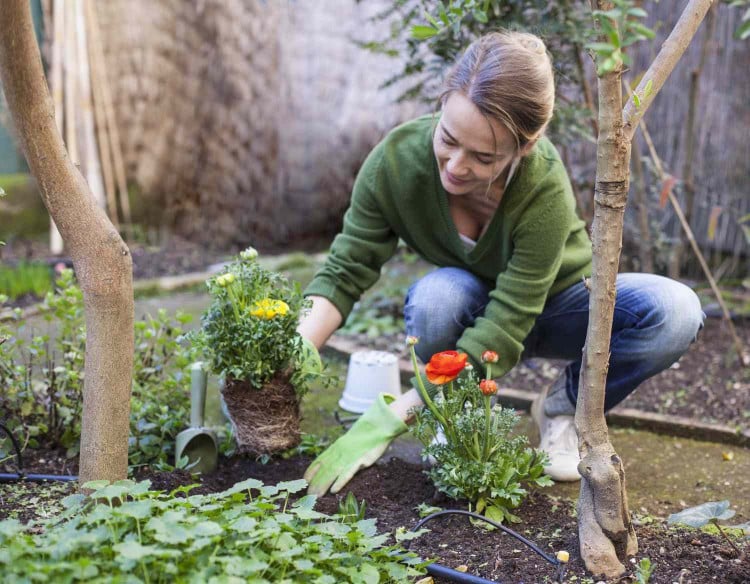- Keeping medication in the bathroom may pose risks to the potency of the medication.
- This may also result in medications expiring earlier than the original expiration date.
- Experts recommend people store medications in a cool, dark place, and keep every medication in its original packaging.
Keeping medication in the bathroom cabinet may result in undesirable, sometimes dangerous, effects.
Compared to other spaces in the house, bathrooms often experience additional moisture. This increased humidity doesn’t just fog up the mirror—it could impact any medication stored in the room.
“Medications should not be kept in the bathroom or a bathroom cabinet,” Shazia Zafar, RPh, a pharmacist from Lake Oswego, OR, told Health. “The humidity from the shower can seep in, which can break down your medicines.”
According to the National Library of Medicine, moisture and humidity can make the medications less potent, or cause them to go bad before the original expiration date.
A medication’s potency matters—if potency changes, you can’t be certain you’re getting the correct dose.
Heat and moisture can damage pills and capsules. For example, the change in atmosphere can break aspirin down to vinegar and salicylic acid, which can, in turn, bother your stomach.
But, just because bathroom humidity has the potential to negatively impact medications doesn't mean it will always happen.
“Most homes have ventilation in the bathroom, which diminishes the impact of humidity,” Lisa Gualtieri, PhD, an associate professor of public health and community medicine at Tufts University School of Medicine, told Health.
Here’s why where you store your medication matters, as well as general safety tips to ensure your medication’s expiration and potency stay intact.
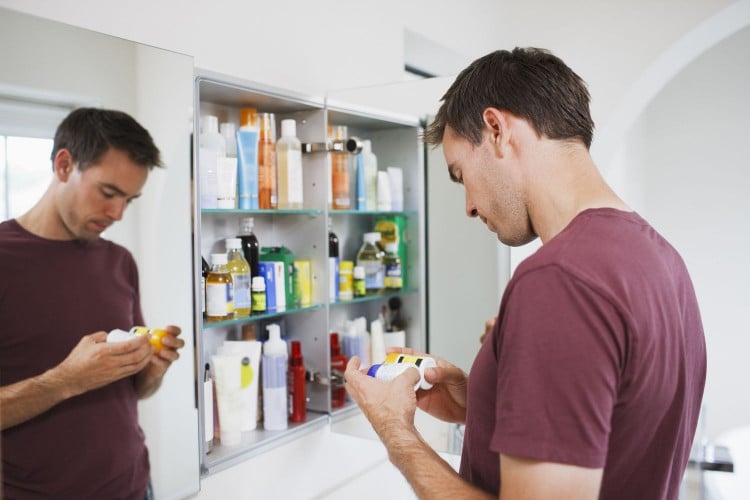
Getty Images / Tom Merton
Most People Don’t Properly Store Medication
A 2021 study analyzed 154 U.S. households—only 23.3% of those households stored all of their medications appropriately.
Of the 457 medications in those spaces, about 17% had temperature issues and 11% had moisture issues; 9% had both.
A 2022 survey found that 31.9% of people stored medications in the kitchen, 28.9% kept them in bathrooms, and 21.3% stored them in bedrooms. Out of the people surveyed, 31.7% kept medications out on counters throughout those rooms.
There’s no hard-and-fast rule about where to store medications—they often differ based on their composition and form (liquid, gel, pill, etc.).
“The most important part of the location selection is fitting it into a routine, such as reaching for milk for morning coffee and seeing the medication in front of the milk—it makes it easier to be adherent,” said Gualtieri. “Everyone has different routines, so it has to be tailored for individuals.”
While considering safe storage tips is important, it’s crucial to prioritize storing medication in a place you can easily remember.
Moisture and Temperature Matter Most
While ventilation may increase your chances of proper medication storage, it’s worth paying attention to the moisture and temperature of your bathroom.
Although the ideal humidity for medication storage is below 60%, one study found that bathroom humidity in the studied households ranged from 33% to 100%.
In addition to the humidity, a space’s temperature can make or break medication storage protocol.
An ideal temperature for most medicines is between 59 and 86 degrees; bathrooms in that study ranged from 56.8 to 88.7 degrees.
Some medications are more sensitive to temperature fluctuations. For instance, most antibiotics are sensitive to warmer spaces, as is insulin. Some forms of birth control, like the ring, should be kept in the fridge.
Even moving medication to kitchen cabinets instead of the bathroom medicine cabinet can be an upgrade, since the space is relatively cool and dry. And, there’s an added height advantage, which can keep medicine away from young children.
No matter where you store your medication, it’s important to keep it in its original container, as they are specially made to protect the medication from environmental elements, Chui explained.
“The package is supposed to account for reasonable humidity,” she said.
It’s also best to store medications away from bright windows or storage rooms affected by outdoor weather, Zafar noted.
The same goes for spaces with fluctuating temperatures, like near the oven.
“You should also make sure you don’t store them in a cabinet above a stove or sink,” she said. “And don’t choose the refrigerator unless the pharmacist, label, or package insert advises refrigeration after opening.”
Other Drug Storage Concerns to Be Aware Of
Even though medicine cabinets pose unique issues, Chui was more concerned about what could happen to medication during shipping—like temperature changes.
“I think the mail order is actually quite risky,” she said.
To combat the possibility of packages sitting in less-than-ideal temperatures during and after delivery, she advises people to use brick-and-mortar locations when they can.
If you receive medication by mail that’s supposed to be refrigerated, it’s important to check that it’s cool to the touch when you open it, Jennifer Young, PharmD, a medication safety specialist at the Institute For Safe Medication Practices, told Health.
“Some pharmacies add a temperature tracker card into their packages, which will alert the patient if the temperature within the compartment went out of range,” she said.
Another possible risk you face when storing medication is storing every member of the household’s medication together—opening you up to the possibility of taking someone else’s medicine by mistake.
Practicing Safe Medication Storage
There are a few simple things to keep in mind when storing medications, according to experts.
The best way to safely store medication is to read and follow the instructions that come with or on the package. Pay attention to the bottle and note the expiration date, said Chui.
Properly unpacking medication is also important. For instance, if your medication comes with a cotton ball on top, take it out—this way, the cotton doesn’t absorb moisture.
It’s also crucial to note any unusual changes in your medication. Don’t take anything that’s changed color, or pills that are harder/softer than normal or are sticking together.
If you’re traveling, prioritize keeping pills in their original packaging instead of transferring them to a different bag. The dark color of prescription bottles can prevent them from light exposure.
“When you’re traveling with medication, it’s best to keep it in your carry-on luggage and in its original container, so that airport security personnel know that the pills were prescribed by a healthcare provider,” explained Zafar.
Finally, don’t be afraid to have your pharmacist review your medications. They can spot any abnormalities and advise you on best storage practices for your specific medications.
Is It Risky To Drink While You're on Medication?


